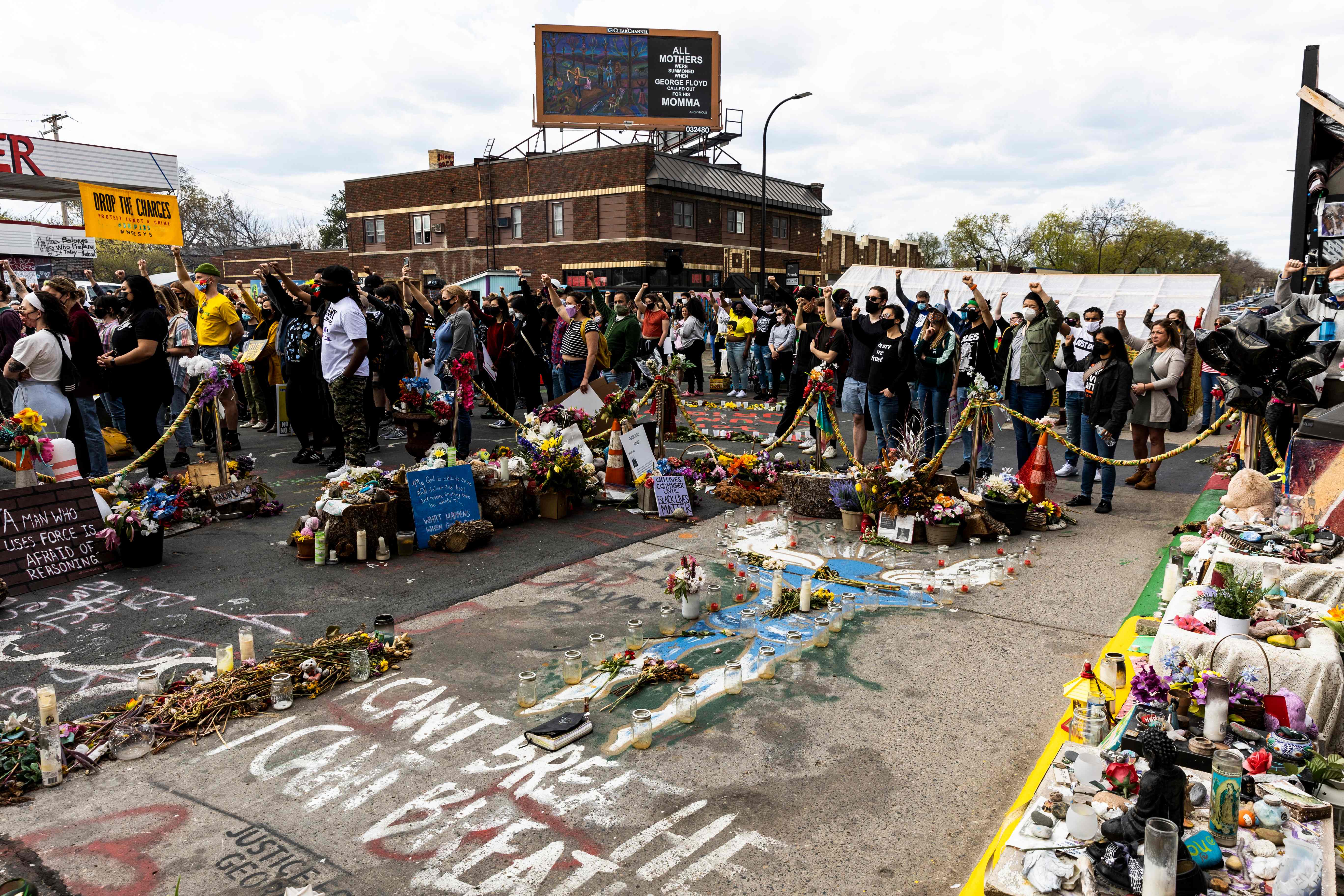Minneapolis reopens road where George Floyd was murdered and dismantles memorial barriers
Police not involved in reopening of street to traffic

The barriers to the George Floyd memorial in Minneapolis, Minnesota, are being removed to apparently make way for traffic for the first time in a year.
Workers for the city of Minneapolis started removing barriers at the intersection of 38th and Chicago at about 4.30am on Thursday morning, according to reports.
It was there on 25 May 2020 that Mr Floyd was murdered by then-Minneapolis officer Derek Chauvin, who keeled on the Black man’s neck for more than nine minutes. Chauvin awaits sentencing after being convicted of murder.
The Minneapolis police department was not involved in the removal of the barriers. The intersection became famous for its memorial of Mr Floyd — known informally as “George Floyd Square” — and was among a number of streets and public squares renamed in his memory.
A spokesperson for the city of Minneapolis told KSTVP on Thursday that the removal of the barriers was an effort by the community group, Agape, who have provided security for the area.
Officials are said to be working with the Floyd family on a permanent solution to the memorial.
Items including flowers and artworks will be replanted and removed as part of the changes, with the effort beginning on Thursday, KSTVP reported.
A metal fist at the centre of the memorial is thought to be the centre of a roundabout. Flowers are being replanted around it.
The mayor of Minneapolis was allegedly not informed by the city’s public works department of the plans in advance.
Councillors were thought to be against approving the removal of the barriers from the intersection of the memorial, when asked by reporters from KSTVP last week.
In a statement, Minneapolis mayor Jacob Frey, city council vice president Andrea Jenkins and city councillor Alondra Cano said they were “collectively committed to establishing a permanent memorial at the intersection, preserving the artwork, and making the area an enduring space for racial healing.”
“Alongside city leadership, we have met on a regular basis with community members to discuss both the short-term path toward reconnecting this area and the long-term plan for the neighbourhood with sustained investments to help restore and heal the community.”
A press conference is planned for later on Thursday.
Join our commenting forum
Join thought-provoking conversations, follow other Independent readers and see their replies
Comments
Bookmark popover
Removed from bookmarks